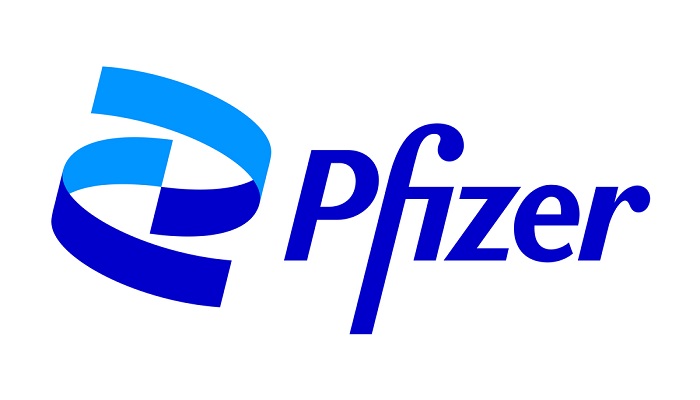Pfizer Inc. and BioNTech SE has announced early data from a Phase 2/3 clinical trial evaluating the safety, tolerability, and immunogenicity of the companies’ Omicron BA.4/BA.5-adapted bivalent COVID-19 vaccine (Pfizer-BioNTech COVID-19 Vaccine, Bivalent (Original and Omicron BA.4/BA.5)).
A 30-µg booster dose of the Omicron BA.4/BA.5-adapted bivalent vaccine demonstrated a substantial increase in the Omicron BA.4/BA.5 neutralizing antibody response above pre-booster levels based on sera taken 7 days after administration, with similar responses seen across individuals aged 18 to 55 years of age and those older than 55 years of age (40 participants in each age group). When comparing responses in individuals older than 55 years of age who received either the bivalent vaccine, or the original vaccine, a 30-µg booster dose of the Original Pfizer-BioNTech COVID-19 Vaccine (also referred to as BNT162b2 Wild Type) elicited more limited increases in the neutralizing antibody response against the Omicron BA.4/BA.5 variants. COVID-19 vaccine responses to date have reliably shown consistent trends across age groups and are further supported by these early data on the bivalent vaccine. Together, these data suggest a 30-µg booster dose of the Omicron BA.4/BA.5-adapted bivalent vaccine is anticipated to provide better protection against the Omicron BA.4 and BA.5 variants than the original vaccine for younger and older adults. The Omicron BA.4 and BA.5-adapted bivalent vaccine was well tolerated with early data indicating a favorable safety profile, similar to that of the original vaccine.
“Since the earliest days of the pandemic, we have strived to transparently share data regarding our COVID-19 vaccines in the interest of public health,” said Albert Bourla, Chairman and Chief Executive Officer, Pfizer. “While we expect more mature immune response data from the clinical trial of our Omicron BA.4/BA.5-adapted bivalent vaccine in the coming weeks, we are pleased to see encouraging responses just one week after vaccination in younger and older adults. These early data suggest that our bivalent vaccine is anticipated to provide better protection against currently circulating variants than the original vaccine and potentially help to curb future surges in cases this winter.”
“These preliminary findings are consistent with our preclinical data showing a substantial increase in the neutralizing antibody response against the Omicron sublineages BA.4 and BA.5,” said Prof. Ugur Sahin, M.D., CEO and Co-founder of BioNTech. “The current dominance of BA.4/BA.5 and related sublineages, underscores the importance of our data and science-based approach to develop a vaccine which is adapted to these prevalent strains of the virus and make it available in a timely manner.”
Immunogenicity was evaluated using a SARS-CoV-2 live virus fluorescent focus reduction neutralization test (FFRNT) assay. Sera were collected 7 days post second booster dose from participants aged older than 55 (40 participants in each age group) and compared to 7-day post sera from 40 participants older than 55 years of age that had received three prior doses of BNT162b2 encoding the wild-type spike-protein of SARS-CoV-2 and a second booster with BNT162b2 Wild-Type. Sera were also collected at 7 days post second booster dose from participants 18 to 55 years of age who received the Omicron BA.4/BA.5-adapted bivalent booster (n=40) to compare bivalent vaccine responses in younger and older adults. The time between third and fourth doses for the bivalent vaccine recipients was approximately 11 months compared to approximately 6 months for the original vaccine. Despite this difference, baseline neutralizing antibody titers were generally similar across groups. Among the participants, samples were equally stratified at baseline in each group between those who had a prior or current history of SARS-CoV-2 and those with no prior or current history of SARS-CoV-2.
Additional data measuring responses at one-month post-administration of the Omicron BA.4/BA.5 bivalent vaccine booster are expected in the coming weeks. These data will be used to support potential full licensure and global registration of the companies’ Omicron BA.4/BA.5-adapted bivalent COVID-19 vaccine. Additionally, the companies have initiated a similar Phase 1/2/3 trial investigating the Omicron BA.4/BA.5-adapted bivalent vaccine among children 6 months through 11 years of age.
A 30-µg booster dose of the Omicron BA.4/BA.5-adapted bivalent vaccine has been authorized for emergency use by the U.S. Food and Drug Administration (FDA) for ages 12 years and older and has also been granted marketing authorization in the EU by the European Medicines Agency (EMA) for the same age group.
The Pfizer-BioNTech COVID-19 Vaccines (COMIRNATY®), which are based on BioNTech’s proprietary mRNA technology, were developed by both BioNTech and Pfizer. BioNTech is the Marketing Authorization Holder for BNT162b2 Wild Type and BNT162b2 Bivalent (WT/OMI BA.4/BA.5) in the United States, the European Union, the United Kingdom, Canada and other countries, and the holder of emergency use authorizations or equivalents in the United States (jointly with Pfizer) and other countries. Submissions to pursue regulatory approvals in those countries where emergency use authorizations or equivalent were initially granted are planned.
Phase 2/3 Study
This multicenter, randomized, controlled Phase 2/3 trial has enrolled about 900 healthy volunteers 12 years of age and older in the U.S. who have received at least three doses of an authorized COVID-19 vaccine. During the trial, participants aged 18 and older received either a 30-µg or 60-µg booster dose of Pfizer and BioNTech’s Omicron BA.4/BA.5-adapted COVID-19 vaccine and participants aged 12 through 17 years received a 30-µg booster of the same vaccine. Comparisons to support potential full licensure and registrations globally will be made with a control group who previously received a fourth dose with the original vaccine.
AUTHORIZED USE
Pfizer-BioNTech COVID-19 Vaccine, Bivalent (Original and Omicron BA.4/BA.5) is FDA-authorized underEmergency Use Authorization (EUA) for use in individuals 12 years of age and older as a single booster dose administered at least 2 months after either:
- completion of primary vaccination with any authorized or approved monovalent COVID-19 vaccine; or
- receipt of the most recent booster dose with any authorized or approved monovalent COVID-19 vaccine.
COMIRNATY (COVID-19 Vaccine, mRNA)
INDICATION
COMIRNATY® (COVID-19 Vaccine, mRNA) is a vaccine approved for active immunization to prevent coronavirus disease 2019 (COVID-19) caused by severe acute respiratory syndrome coronavirus 2 (SARS-CoV-2) in individuals 12 years of age and older.
AUTHORIZED USE
Primary Series
- a third primary series dose to individuals 12 years of age and older who have certain kinds of immunocompromise
Pfizer-BioNTech COVID-19 Vaccine
AUTHORIZED USES
Pfizer-BioNTech COVID-19 Vaccine is FDAauthorized under Emergency Use Authorization (EUA) for use in individuals 6 months and older to provide:
Primary Series
- a 3-dose primary series to individuals 6 months through 4 years of age
- a 2-dose primary series to individuals 5 years through 11 years of age
- a third primary series dose to individuals 5 years through 11 years of age with certain kinds of immunocompromise
- a single booster dose to individuals 5 through 11 years of age who have completed a primary series with Pfizer-BioNTech COVID-19 Vaccine
EMERGENCY USE AUTHORIZATION
Emergency uses of the vaccines have not been approved or licensed by FDA but have been authorized by FDA under an Emergency Use Authorization (EUA) to prevent Coronavirus Disease 2019 (COVID-19) in individuals aged 6 months and older for the Pfizer-BioNTech COVID-19 Vaccine and 12 years and older for the Pfizer-BioNTech COVID-19 Vaccine, Bivalent. The emergency uses are only authorized for the duration of the declaration that circumstances exist justifying the authorization of emergency use of the medical product under Section 564(b)(1) of the FD&C Act unless the declaration is terminated or authorization revoked sooner.
IMPORTANT SAFETY INFORMATION
Pfizer-BioNTech COVID-19 Vaccine, Bivalent (Original and Omicron BA.4/BA.5), COMIRNATY® (COVID-19 Vaccine, mRNA) and Pfizer-BioNTech COVID-19 Vaccine
Tell your vaccination provider about all of your medical conditions, including if you:
- have any allergies
- have had myocarditis (inflammation of the heart muscle) or pericarditis (inflammation of the lining outside the heart)
- have a fever
- have a bleeding disorder or are on a blood thinner
- are immunocompromised or are on a medicine that affects the immune system
- are pregnant, plan to become pregnant, or are breastfeeding
- have received another COVID-19 vaccine
- have ever fainted in association with an injection
- The vaccine may not protect everyone
- You should not get COMIRNATY (COVID-19 Vaccine, mRNA), the Pfizer-BioNTech COVID-19 Vaccine, or the Pfizer-BioNTech COVID-19 Vaccine, Bivalent if you have had a severe allergic reaction after a previous dose of COMIRNATY or the Pfizer-BioNTech COVID-19 Vaccine or any ingredient in these vaccines
- There is a remote chance that these vaccines could cause a severe allergic reaction. A severe allergic reaction would usually occur within a few minutes to 1 hour after getting a dose of the vaccine. For this reason, your vaccination provider may ask you to stay at the place where you received the vaccine for monitoring after vaccination. If you experience a severe allergic reaction, call 9-1-1 or go to the nearest hospital
Seek medical attention right away if you have any of the following symptoms: difficulty breathing, swelling of the face and throat, a fast heartbeat, a bad rash all over the body, dizziness, and weakness
- Myocarditis (inflammation of the heart muscle) and pericarditis (inflammation of the lining outside the heart) have occurred in some people who have received COMIRNATY® (COVID-19 vaccine, mRNA) or Pfizer-BioNTech COVID-19 Vaccine. The observed risk is higher among adolescent males and adult males under 40 years of age than among females and older males, and the observed risk is highest in males 12 through 17 years of age. In most of these people, symptoms began within a few days following receipt of the second dose of vaccine. The chance of having this occur is very low
Side effects that have been reported with these vaccines include:
- Severe allergic reactions
- Non-severe allergic reactions such as rash, itching, hives, or swelling of the face
- Myocarditis (inflammation of the heart muscle)
- Pericarditis (inflammation of the lining outside the heart)
- Injection site pain
- Tiredness
- Headache
- Muscle pain
- Chills
- Joint pain
- Fever
- Injection site swelling
- Injection site redness
- Nausea
- Feeling unwell
- Swollen lymph nodes (lymphadenopathy)
- Decreased appetite
- Diarrhea
- Vomiting
- Arm pain
- Fainting in association with injection of the vaccine
- Unusual and persistent irritability
- Unusual and persistent poor feeding
- Unusual and persistent fatigue or lack of energy
- Unusual and persistent cool, pale skin
These may not be all the possible side effects of the vaccine. Call the vaccination provider or healthcare provider about bothersome side effects or side effects that do not go away.
Individuals should always ask their healthcare providers for medical advice about adverse events. Report vaccine side effects to the US Food and Drug Administration (FDA) and the Centers for Disease Control and Prevention (CDC) Vaccine Adverse Event Reporting System (VAERS).
Source: Pfizer


